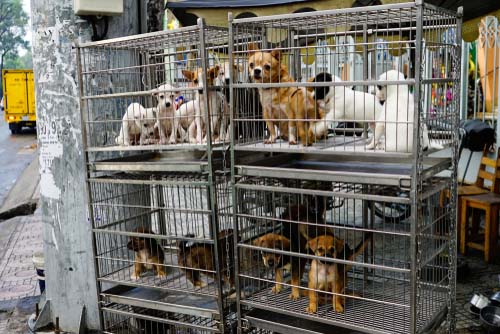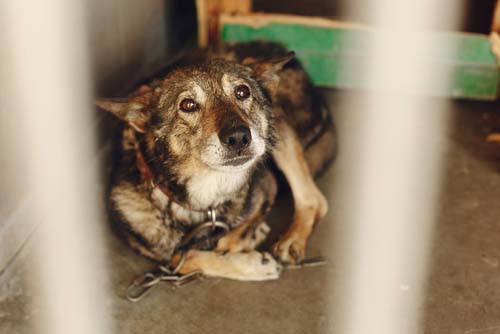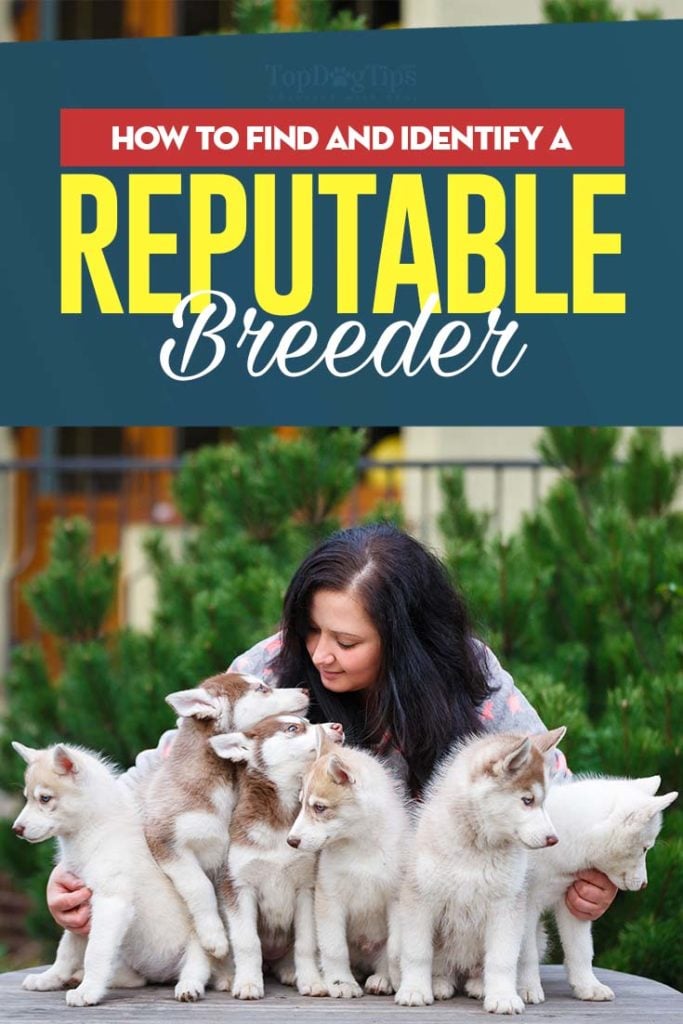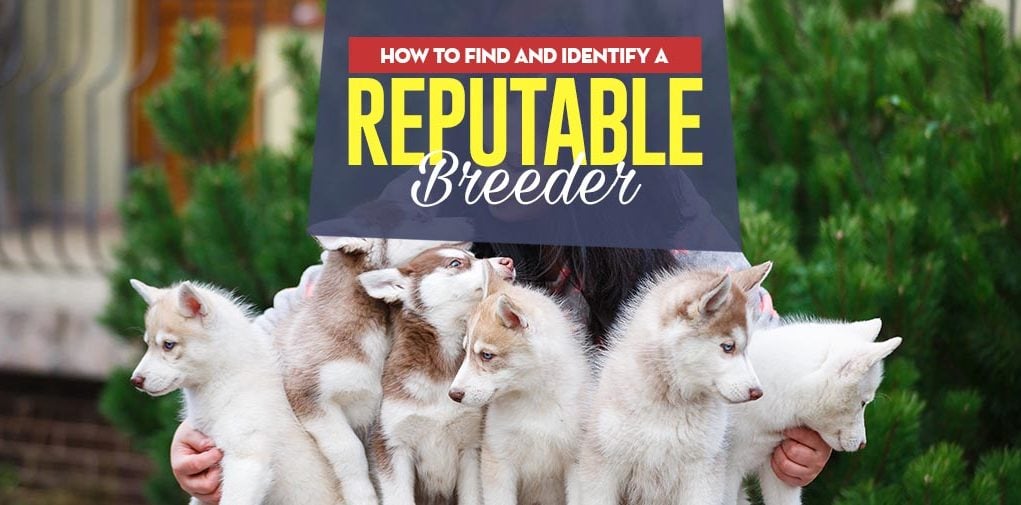If you prefer to purchase your new puppy, you must look for a reputable dog breeder.
Believe it or not, there are places that do exploit dogs. And you surely don't want to fund them, do you?
But how to find a reputable breeder and identify which operations are legit while avoiding puppy scams?
Types of Dog Breeders
In your quest to find a new furry family member, you will run into these three types of dog breeders:
1. Reputable Breeder
The reputable breeder focuses their efforts on the health and development of a breed.
Often, a litter of puppies will cost responsible breeders more than they will make.
This is due to the cost of breeding, care, medical screening, premium nutrition, and the maintenance of raising healthy dogs.
Responsible breeders sell puppies at high prices to cover their legit breeding costs. They screen dog buyers to ensure they can afford appropriate care for their new puppy.
These breeders also require a purchase contract with a spay and neuter clause, a health guarantee, and an agreement to return the puppy to the breeder should the new owner ever be unable to care for them.
2. Puppy Mill Breeder
Puppy mills are focused on the mass production of puppies for profit.
These breeders often keep their dogs in unsanitary and inhumane conditions to decrease costs.
They make significant profits by breeding their dogs to the max and selling puppies for high prices despite their poor health.
Puppy mills are often willing to haggle on the price of their puppies to lock in a sale.
Health guarantees are also rarely included in puppy mills (although sometimes, they include a 30-day guarantee).
These breeders will usually offer a dog buyer the option to pay more for their puppy to bypass spaying and neutering.
Puppy mills also rarely request their puppies to be returned if the new dog owners cannot care for them (sometimes even refusing the puppies).
3. Backyard Breeders
Backyard breeding falls somewhere between a responsible breeder and a puppy mill.
Breeding dogs, for backyard breeders, are for money and for the love of dogs.
Sadly, backyard breeder rarely has the funds or education to breed healthy dogs, and they rely on the sale of their puppies as their only income.
These are typical “homemade” businesses, and despite the love of dogs, backyard breeders still breed primarily for money.
They offer lower prices on their dogs to increase sales. Backyard breeders also frequently cut the prices when not sold quickly (discount puppies) to get rid of a previous litter before their next expected litter arrives.

Tips on How to Find Responsible Breeders
Every responsible pet owner should make an effort to find a responsible breeder.
Below are some tips to make sure that the puppy you buy comes from a legitimate place.
Attend a Dog Show
Well-bred dogs are featured in dog shows, so they're a great place to get referrals to quality breeders.
Ask for References
A good breeder will have plenty of great references, and they won't mind providing them to you.
Ask a Vet for Referrals
Vets see plenty of purebred dogs come through their practice, and they are familiar with their veterinary history.
Contact Local Breed Clubs
Organizations like local hunting dog groups, gun dog associations, retriever clubs, and others will be aware of local legitimate breeders known for producing healthy dogs.
Contact the AKC
The AKC maintains a database of breeders that you can reference before buying a puppy.
However, use caution when consulting this database since any breeder can list with the AKC. Checks on facilities are random spot checks, not mandatory.
10 Signs It's a Responsible Dog Breeder
Below are signs that the place is reputable and worth buying a dog from.
1. They encourage you and your family to visit the puppy multiple times before bringing them home.
2. The puppy's parents are around, and the breeder lets you meet them.
3. The dogs and puppies on site are healthy, bright-eyed, and have appropriate energy levels.
4. They do not require that you use a specific veterinarian so long as you use a veterinarian.
5. Requires a puppy contract that includes a spay/neuter clause and a “return to breeder” clause, should you ever be unable to care for the puppy.
6. The breeder has a waiting list for their puppies.
7. They are unwilling to ship their puppies or sell them sight unseen.
8. They can provide health clearance certification for both parents.
9. A health guarantee is provided to all of their puppies. They also have complete documentation of the puppy's medical history.
10. They breed only a limited number of times per year (1 litter per bitch per year.)
10 Signs It's a Disreputable Dog Breeder
On the other hand, here are the giveaways of a disreputable dog breeder you should watch out for.
1. They will not allow you to visit their dogs/puppies before you purchase.
2. The area where the dogs are kept smells strongly of urine or feces.
3. The puppies have urine or feces matted on their feet/fur.
4. They cannot provide health clearances for the puppies' parents.
5. The staff are not knowledgeable of the breed.
6. The puppies are lethargic and show little signs of playfulness or curiosity.
7. Puppies are available instantly without a waiting list.
8. The puppies' parents are not on site when you visit.
9. The puppies all appear shy and reluctant to approach you and even the breeder/staff.
10. They are unable to provide a genealogy for their dogs.

Questions to Expect from a Reputable Dog Breeder
Good breeders ask several questions about you, your family, habits, activities, experience, living situation, and intentions.
Reputable breeders care for their dogs; asking these “new owner questions” assures them that you are prepared to provide a good home for the puppy.
They also make sure you get the perfect dog suited to your lifestyle.
Some questions you can expect are:
- Why do you want a puppy?
- Have you ever had a puppy before? Are you familiar with introducing a new puppy to your home?
- Are you willing and financially able to provide the best veterinary care for your puppy?
- Do you agree to spay or neuter your puppy and provide proof of spaying or neutering once it's old enough to undergo the procedure?
- Do you have children? If so, how old are they?
- Do you plan to take your puppy to obedience classes and train them well?
- Do you plan to let your pet live indoors, or will they be an “outdoor dog”?
- Do you have a fenced yard? If not, how do you plan on exercising your new pup?
- Have you had pets previously, or do you currently have pets at home?
- Do you lead an active lifestyle, or would you describe yourself as being more sedentary?
- Will your puppy serve a specific purpose? Will they be trained for service work, search and rescue, etc.?
- Are you able to provide your dog with daily exercise?
- Do you own your home? Does your homeowner's association have any breed-specific regulations?
Before We Go…
Now you know how to find the right breeder in your area.
However, we'd like to ask you to reconsider your choice to buy a new pup.
A shelter or rescue group in your area may be full of puppies and dogs looking for homes.
Each year 3.3 million dogs are euthanized simply due to lack of space. Please consider saving a life and reducing that statistic.
READ NEXT: 13 Helpful Tips for Rescuing a Dog from a Shelter
Want to share this?














